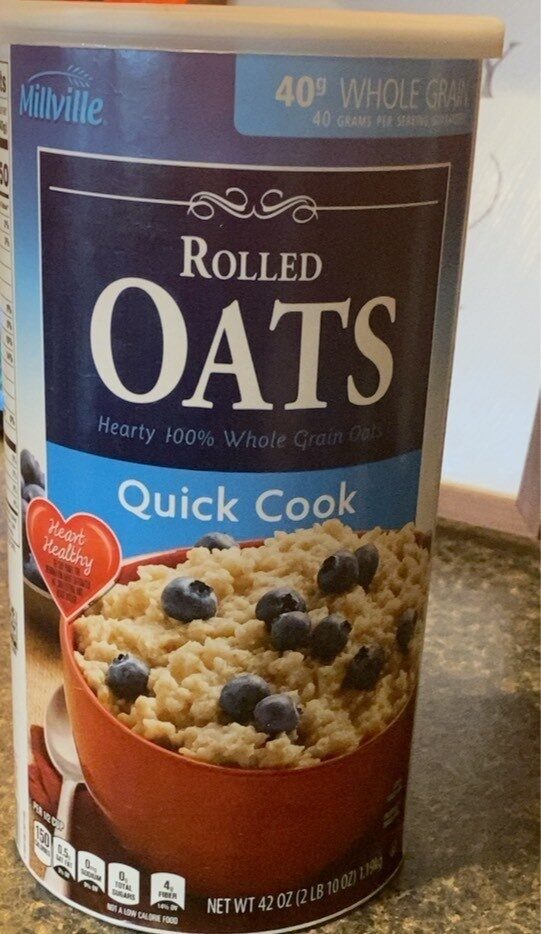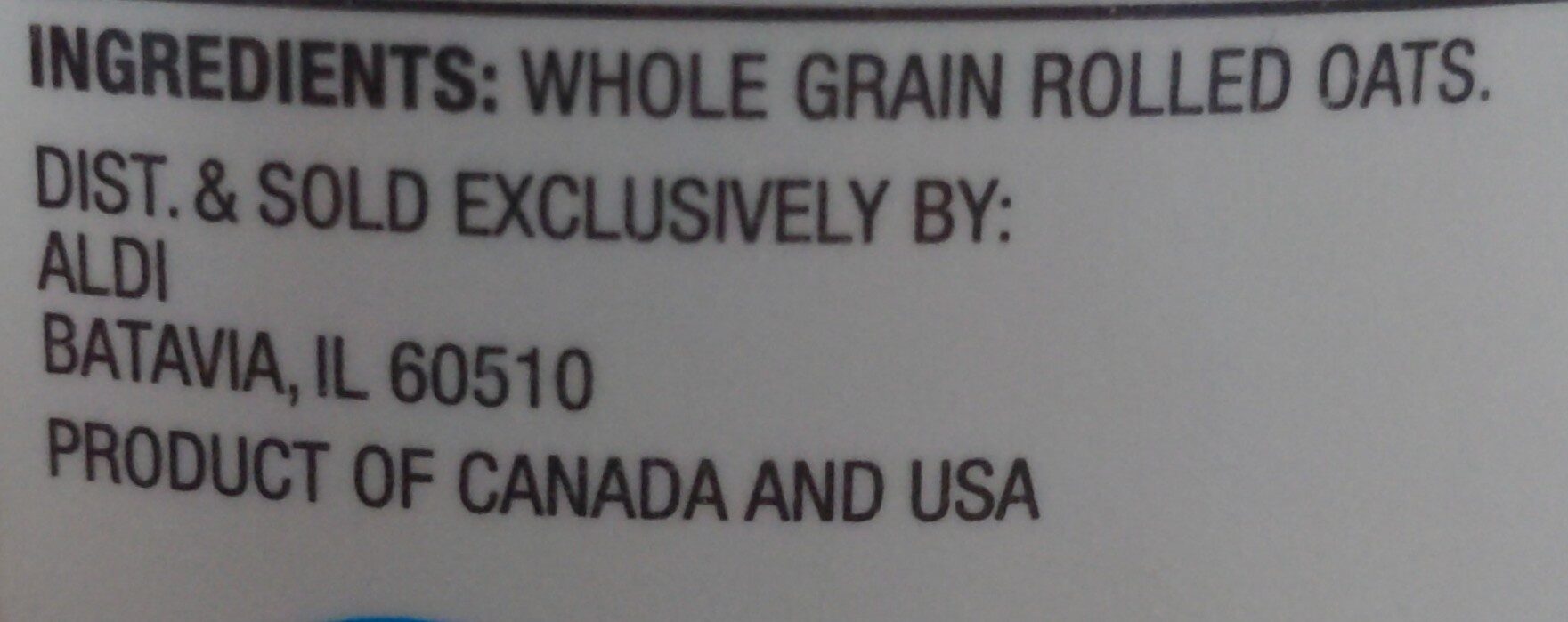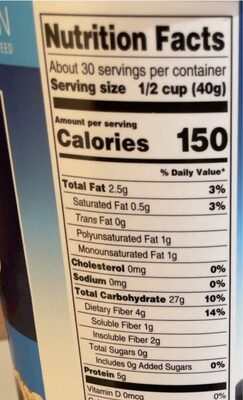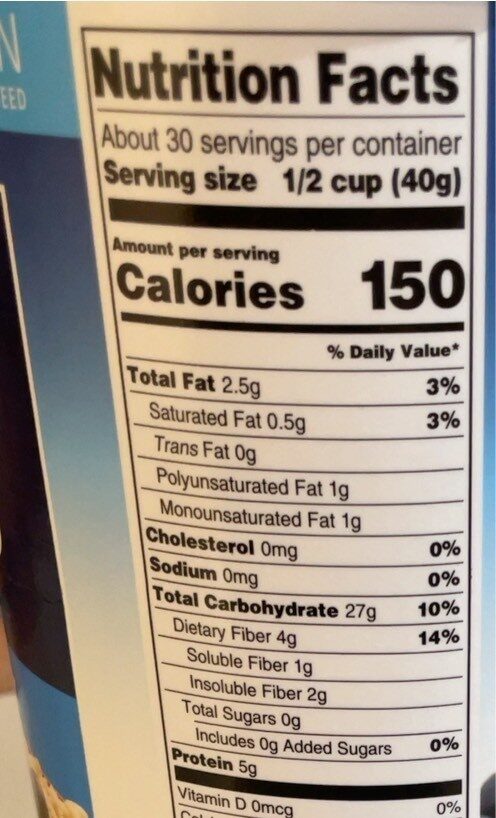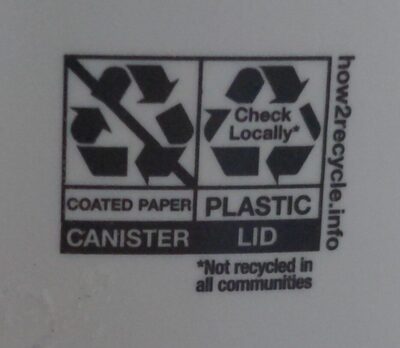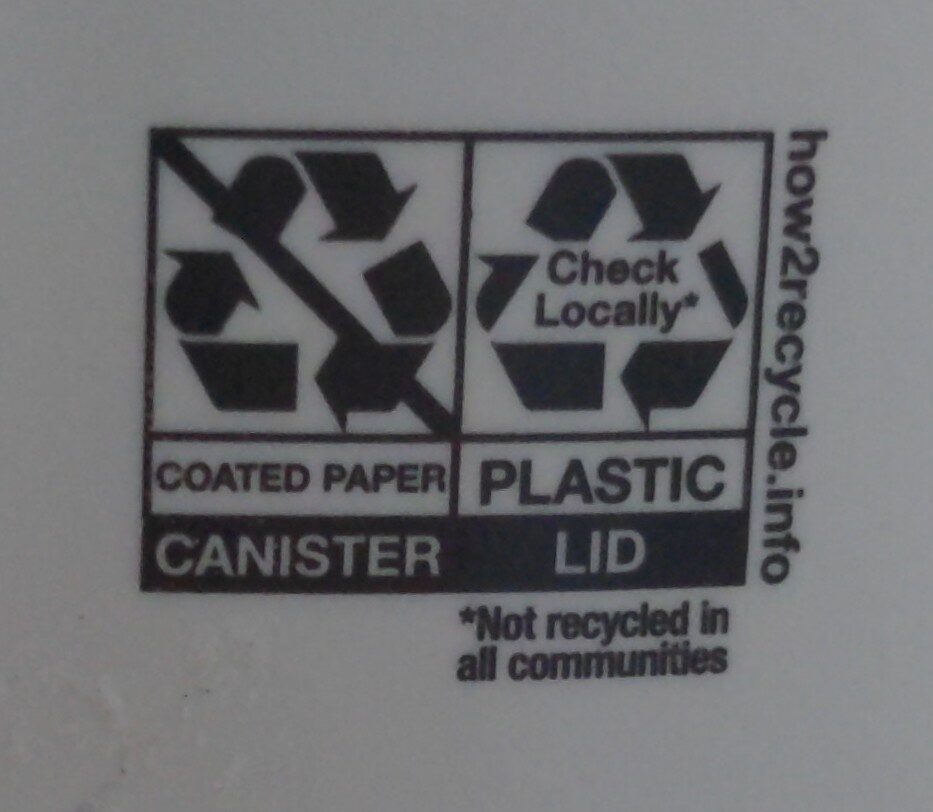Rolled Oats - Millville - 1194 g
Barcode: 4099100207156 (EAN / EAN-13)
Quantity: 1194 g
Packaging: 1 COATED PAPER PLASTIC CANISTER to throw away, 1 plastic LID to recycle *Not recycled in all communities
Brands: Millville
Categories: Plant-based foods and beverages, Plant-based foods, Breakfasts, Cereals and potatoes, Cereals and their products, Breakfast cereals, Flakes, Cereal flakes, Rolled flakes, Rolled oats
Origin of ingredients: United States, Canada
Stores: Aldi
Countries where sold: United States
Matching with your preferences
Report a problem
Data sources
Product added on by kiliweb
Last edit of product page on by maldan.
Product page also edited by charlesnepote, ferons, foodvisor, inf, victor-morgan-kib, wolfgang8741, yuka.sY2b0xO6T85zoF3NwEKvlmphA9HPqAjoC0bjtGyUwerRdKXVUf9L_br3Iag, yuka.sY2b0xO6T85zoF3NwEKvlnN6bcXwqTnEaiTiplGb2YqIDr72SM9o7I33aKo.

